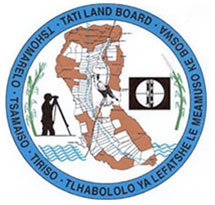
TATI LAND BOARD
Tati Land Board is one of the twelve tribal Land Boards in Botswana, situated in Masunga managing tribal land within the North East District. It does not have a Sub Land Board.
It services 43 villages with jurisdictional Area coverage of 3636sq/km of Tribal Land which constitutes 61% total area of the North east District which has total coverage of 5960 sq/km. The remaining 2324sq/km (39%) is freehold Land.
The District Population stood at about 69 395 people (2022 National Population Census).
The district has been declared a planning Area.
TATI LAND BOARD MANDATE
The Tati Land Board has been duly established under Section 3 of the Trial Land Act Cap 32:02 as a trustee for tribal land and is charged with the responsibility of administering land in the Tati Tribal Area. It is a body corporate capable of suing and being sued in its own name (Section 9). This responsibility of being a trustee for tribal land means that Tati Land Board is holding this land for the benefit and advantage of all citizens for purposes of promoting the economic and social development of all the peoples of Botswana (Section 10). Tati Land Board therefore has a responsibility of allocating land fairly and equitably without fear or favor.
The functions of Tati Land Board are executed through its various Departments namely: Surveys and Mapping, Land Registration and Estate Management, land Use Planning, Human Resources Management & Administration, Finance and Procurement, Divisions; Works Services, legal Services, Policy and Strategic Planning, Information Technology and Internal Audit.
THE MAIN FUNCTION OF TATI LAND BOARD ARE;
Ways in which the land can be allocated:
1. Customary Land Grant
2. Common Law Land Grant
VILLAGES COVERED BY TATI LAND BOARD ARE;